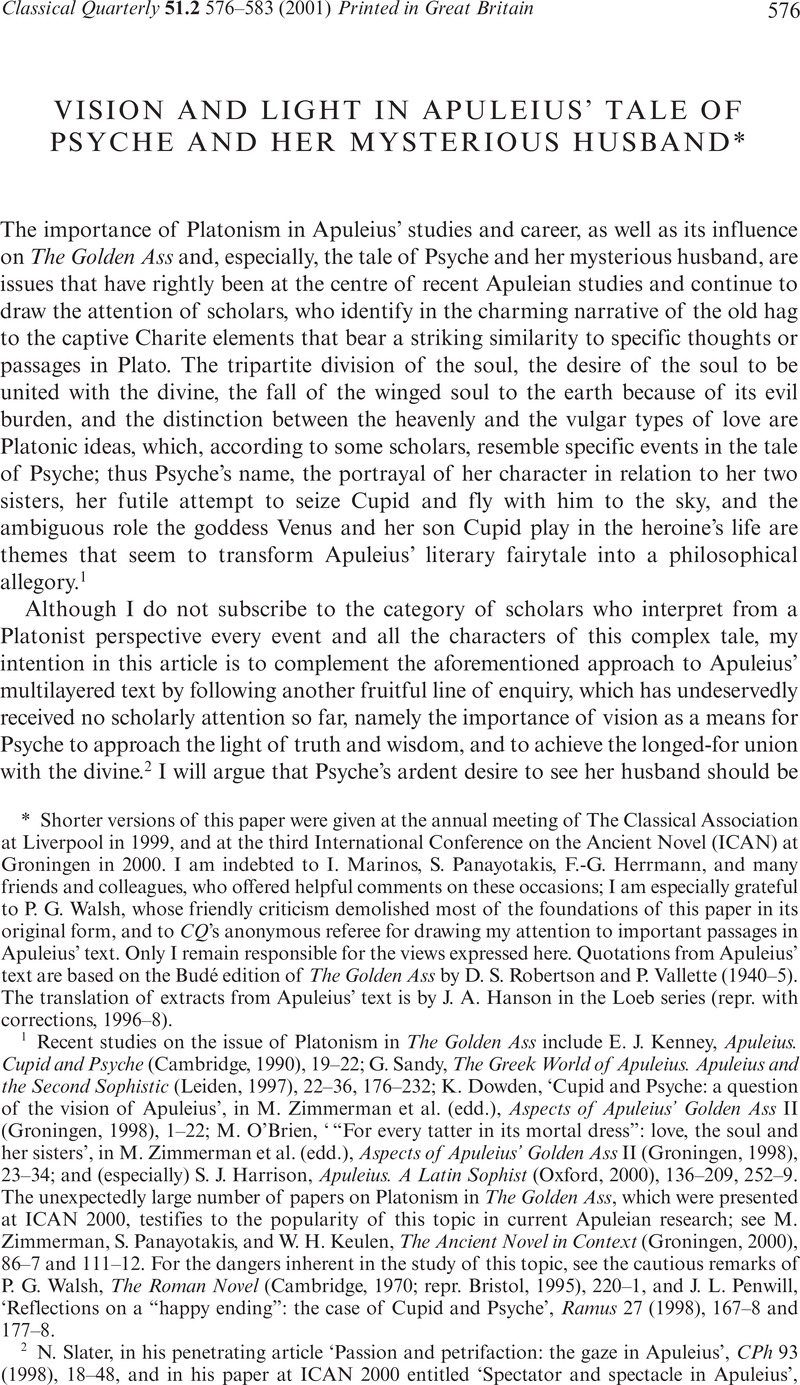Article contents
Vision and Light in Apuleius’ Tale of Psyche and her Mysterious Husband*
Published online by Cambridge University Press: 07 April 2006
Abstract

- Type
- Research Article
- Information
- Copyright
- Copyright © The Classical Association 2001
Footnotes
Shorter versions of this paper were given at the annual meeting of The Classical Association at Liverpool in 1999, and at the third International Conference on the Ancient Novel (ICAN) at Groningen in 2000. I am indebted to I. Marinos, S. Panayotakis, F.-G. Herrmann, and many friends and colleagues, who offered helpful comments on these occasions; I am especially grateful to P.G. Walsh, whose friendly criticism demolished most of the foundations of this paper in its original form, and to CQ’s anonymous referee for drawing my attention to important passages in Apuleius’ text. Only I remain responsible for the views expressed here. Quotations from Apuleius’ text are based on the Budé edition of The Golden Ass by D. S. Robertson and P. Vallette (1940–5). The translation of extracts from Apuleius’ text is by J. A. Hanson in the Loeb series (repr. with corrections, 1996–8).
References
* Shorter versions of this paper were given at the annual meeting of The Classical Association at Liverpool in 1999, and at the third International Conference on the Ancient Novel (ICAN) at Groningen in 2000. I am indebted to I. Marinos, S. Panayotakis, F.-G. Herrmann, and many friends and colleagues, who offered helpful comments on these occasions; I am especially grateful to P.G. Walsh, whose friendly criticism demolished most of the foundations of this paper in its original form, and to CQ’s anonymous referee for drawing my attention to important passages in Apuleius’ text. Only I remain responsible for the views expressed here. Quotations from Apuleius’ text are based on the Budé edition of The Golden Ass by D. S. Robertson and P. Vallette (1940–5). The translation of extracts from Apuleius’ text is by J. A. Hanson in the Loeb series (repr. with corrections, 1996–8).
- 5
- Cited by




